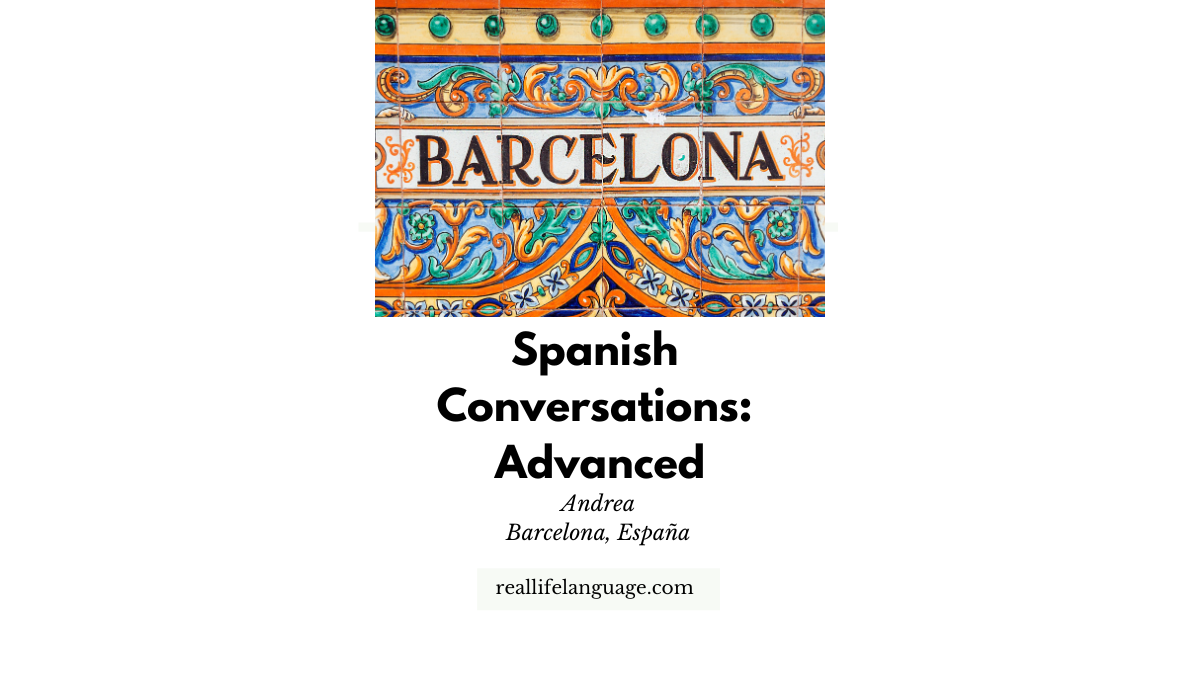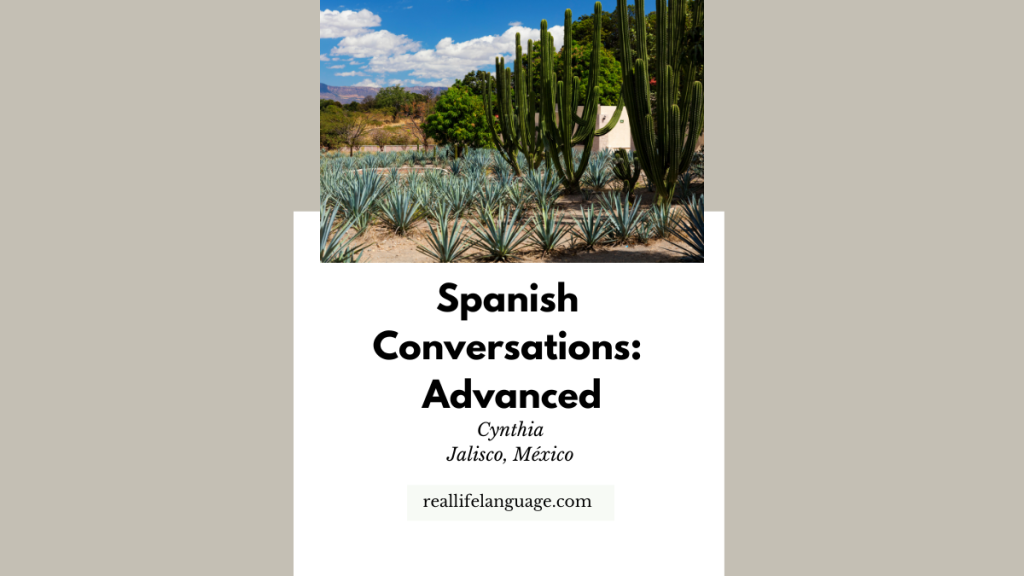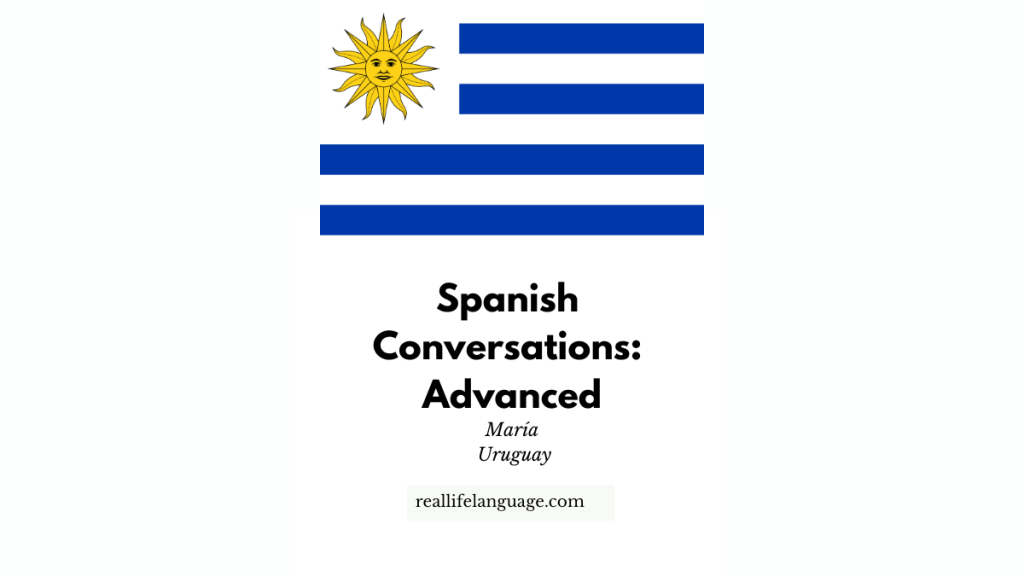
This article is a learner-friendly guide based on a conversation with Andrea, who grew up in Teruel and now lives in Barcelona. It is designed to help learners who want to learn advanced Spanish by exploring real-life topics: personal stories, work and travel, gender and society, the economy, housing, festivals, food, current events and everyday customs. Throughout the article you will find useful vocabulary, phrases and example sentences to practise and understand natural speech.
Outline
- Andrea’s life story and how travel shaped her
- Work, language practice and cultural adaptation
- Women and social change in Spain
- Economy and housing in Barcelona
- Parties, leisure and family customs
- Food: the beloved tortilla de patatas
- Current events and their local effects
- Spanish vocabulary and advanced phrases for learners
- Practical takeaways for practising advanced Spanish
Andrea’s life: from Teruel to Barcelona and beyond
Andrea’s story is a great model for learners who want to hear authentic, conversational Spanish about life choices. She grew up in a small city (Teruel) and later moved to Barcelona after her parents separated. At 21 she decided to leave her comfort zone after a long relationship ended and spent four months travelling through Southeast Asia, followed by a year in New Zealand. These experiences were turning points that helped her grow and practise languages.
“I grabbed my backpack, bought a ticket and went to Vietnam… I was four months in Southeast Asia… I discovered things about myself that I didn’t even know before.”
Useful phrase to practise:
- Salir de la zona de confort — to leave the comfort zone. Example: Después de romper con su pareja, decidió salir de la zona de confort y viajar sola.
Work, languages and cultural adaptation
In New Zealand Andrea worked at a spa reception where she had to speak English on the phone and do marketing calls. This pushed her to improve her English and gave her real-world experience dealing with customers.
Language learning takeaway: contextual jobs (reception, sales, guiding) force conversational practice and accelerate fluency. For learners: seek roles or volunteer situations where you must use Spanish in live interactions.
Useful expressions
- Atender a los clientes — to attend to customers.
- Hacer llamadas de marketing — to make marketing calls.
- No me entendían — they didn’t understand me (useful when describing comprehension problems).
Women and social change
Andrea reflects on generational changes for women in Spain. While legally there is equality, she recognises persistent inequalities such as pay gaps and underrepresentation in some sectors. She mentions public demonstrations and that the topic is still being fought for.
“Before, women were at home… Now, women work outside the home, they have high positions… but there are still great inequalities.”
Useful vocabulary:
- Igualdad — equality
- Brecha salarial — wage gap
- Manifestaciones — demonstrations
The economy and housing
Andrea gives a practical view of Spain’s economy after the pandemic: tourism is a major sector, and when COVID-19 hit, many earnings disappeared. Agriculture (olive oil, wine, citrus) continues to be important. She also explains housing in Barcelona: most people live in pisos (apartments), studios are common, rents and property prices are high, and many young people rent for years before buying.
Key phrase for learners:
- Vivir de alquiler — to live renting. Example: Muchos jóvenes en Barcelona viven de alquiler hasta pasados los 30 o 40 años.
Numbers and structure to practise
- Describe your city: En mi ciudad predominan los pisos y los estudios.
- Explain housing affordability: Los sueldos no suelen llegar para una hipoteca sin ahorrar muchos años.
- Talk about main industries: En mi región la agricultura y el turismo son fundamentales.
Parties, leisure and family customs
Andrea describes typical celebrations: birthdays usually begin with family meals, cake and the playful custom of “tirar de las orejas” (pulling the birthday person’s ears once for each year). After family time, nights out to bars or clubs are common. She also mentions Sant Jordi: traditionally a man gives a rose and a woman gives a book, a very Catalan festival.
Custom vocabulary and phrases:
- Tirar de las orejas — to pull someone’s ears (birthday custom)
- Salir de copas — to go out for drinks
- Fiesta mayor — town festival
Food: tortilla de patatas and regional pride
Food is central to social life. Andrea’s favourite Spanish dish is the tortilla de patatas (potato omelette). This simple, iconic dish divides the country: with or without onion (con o sin cebolla) is a perpetual debate.
“My grandmother made the omelette super good… she made it with onion.”
Cooking vocabulary and example sentence:
- La tortilla de patatas (la tortilla española) — potato omelette. Example: Me encanta la tortilla con cebolla.
- Freír — to fry. Hay que freír bien las patatas.
- Batir los huevos — to beat the eggs. Primero se baten los huevos y luego se mezclan con las patatas.
World events and local consequences
Andrea mentions concern about the Russia–Ukraine war, describing it as a tragic humanitarian crisis and noting how global conflicts can affect people indirectly. For example, some Russian freelance teachers lost access to payment platforms, showing how geopolitics can touch everyday workers.
Useful discussion phrases:
- Conflicto armado — armed conflict
- Refugiados — refugees
- Afectar a la vida cotidiana — to affect daily life
Family, relationships and social life
Andrea is an only child but grew up close to cousins who felt like siblings. She lives near her mother in Barcelona and keeps regular contact. She emphasises that personal priorities change: for some people buying a house is top priority; for others, travel and flexibility matter more.
Useful phrases about family:
- Hijo único — only child
- Primos — cousins
- Prioridades personales — personal priorities
Practical vocabulary and advanced phrases for learners
Below is a list of advanced, high-utility phrases and vocabulary drawn from the conversation. Practice them aloud, make sentences and use them in conversation exchanges.
- Salir de la zona de confort — to leave the comfort zone
- Empoderamiento — empowerment
- Brecha salarial — pay gap
- Vivir de alquiler — to rent (for housing)
- Pagar con tarjeta — to pay by card
- Gastar en viajes — to spend on travel
- Cambiar de ciudad — to change city/move
- ¡Me encanta! — I love it! (colloquial and frequent)
Example advanced sentences to imitate
- Después de la ruptura, decidió salir de la zona de confort y viajar sola por Asia. — After the breakup, she decided to leave her comfort zone and travel alone through Asia.
- En España, el sector turismo sufrió mucho con la pandemia. — In Spain, the tourism sector suffered a lot due to the pandemic.
- Muchos jóvenes prefieren gastar en viajes en vez de ahorrar para una casa. — Many young people prefer to spend on travel instead of saving for a house.
Conclusion: how to use this conversation to learn
This conversation provides a natural, varied set of topics ideal for intermediate-to-advanced learners who want to learn advanced Spanish. Study the vocabulary lists, repeat the example sentences aloud, and try to retell Andrea’s story in Spanish. Use the cultural notes—about food, customs, housing and social change—to create your own speaking prompts. Practising with real-life material like this helps build fluency, cultural awareness and confidence.
Key action steps:
- Pick three new phrases from the lists and write five original sentences using them.
- Summarise Andrea’s life in Spanish (150–200 words) to practise past tenses.
- Discuss the tortilla de patatas debate: ¿con cebolla o sin cebolla? Use supporting vocabulary.
Return to these topics regularly to expand vocabulary and improve conversational flow while you learn advanced Spanish.
100s of videos to learn Spanish:
https://real-life-language.kit.com/b1531a6404
Learn Advanced Spanish: A Conversation with Victoria from Mérida, Mexico

